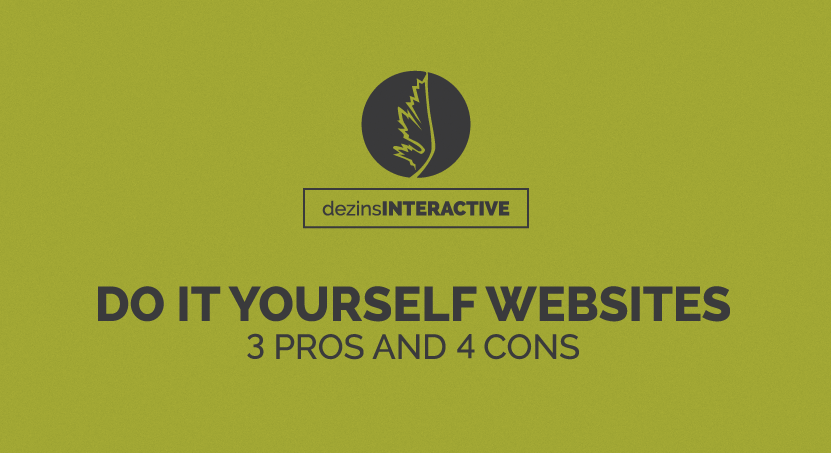Although Do It Yourself (DIY) website builders have been around for a long time, it’s only recently that they’ve become more visible. This is probably due to the fact that for years now having a web presence proved you to be a legitimate business. Now for smaller businesses or one’s just starting out the budget is probably just not there to spend getting a website professionally done. That’s why DIY website platforms have become more popular. Though some may feel this is a brilliant way to get your business online there are cons to go along with the pros. We’ve taken a look and below you’ll find what we (a web development company) think are the top three pros of having a DIY website as well as the top four cons.
Pros
The goal of starting a website for your business is normally to propel your business to the next level and that is possible even if on a budget. Our number one pro of a DIY website explains that.
- Cost: Using a DIY platform to build a website is initially a lot cheaper than having it professionally done.
- Templates: DIY sites come with a relatively large amount of templates. These templates can be optimized for your mobile devices making your site mobile friendly. Stock photos and color palettes are options offered with the different templates and of course your personal branding can be added as well.
- For those who are not the most tech savvy the drag and drop editor of the DIY website builders are fairly easy to use. So you won’t have to stress about learning HTML or CSS codes. All it takes is a few clicks to add text, images, and even videos to the site!
Cons
With the low price and good things listed above unfortunately it is all accompanied by some drawbacks.
- You Do Not Own Your Site! One of the biggest cons of a DIY website is the fact that you don’t own it. With a DIY website you’re pretty much renting a place to keep your things. If you decide to leave everything you have stays. Unfortunately, whatever amount of time you put into the site is just lost time. So, if you decide to go elsewhere or even if the platform itself shuts down, you’re at a complete loss.
- No Backup! That’s right some DIY builders do not provide your website a backup or it may not provide a complete backup. Therefore, once you’re to the point of moving to a more expansive site, you might encounter several challenges possibly losing everything.
- Limitations: Due to the fact that DIY website’s are closed source programs you’ll have restrictions on customizations. Basically there will only be so much you can do when it comes to building out your website.
- Shared Hosting: DIY websites are hosted by the builder’s own server, so that also puts limitations on what you’re able to do. To add to that your site can be shutdown if you’re found in violation of any terms and conditions of your provider.
Now that you know some of the pros and cons of DIY website platforms, maybe your decision will come a bit easier. Whichever route you decide to take, the selection should be carefully chosen after taking the pros, cons, your business goals, and budget into consideration. Oftentimes we recommend if there are budget constraints, start with a DIY website and then develop plans to have your own custom site built at a later date.

